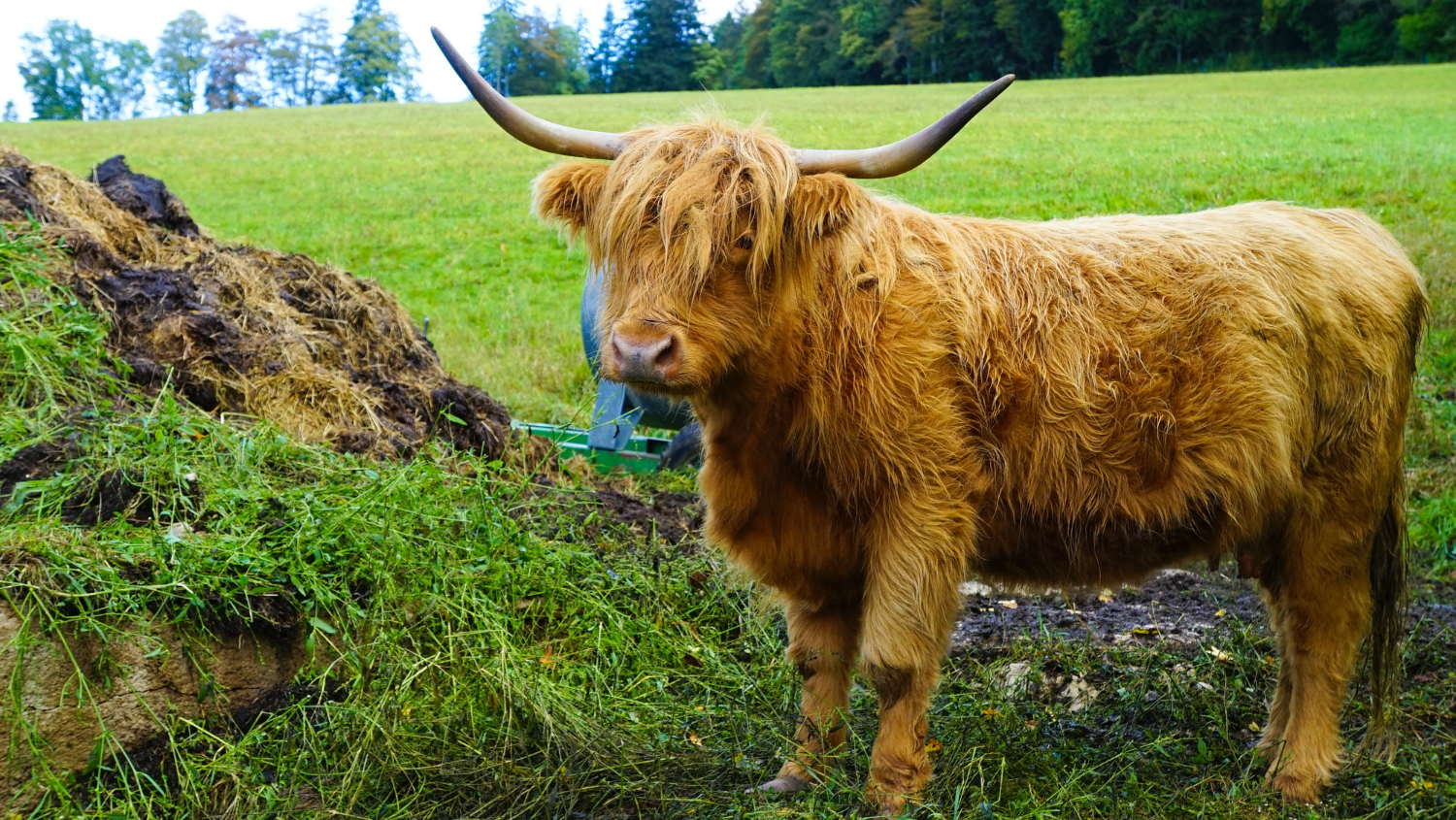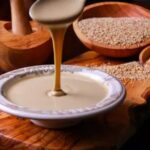Introduction To Miniature Highland Cows
Miniature Highland cows are small, fluffy cattle known for their long hair and calm nature. They look like tiny versions of the famous Scottish Highland cows, but they take up less space and are easier to handle. Many people are now interested in keeping a miniature highland cow as a gentle farm companion or even as a unique pet.
These small cows attract attention because of their teddy-bear appearance and friendly behavior. Whether you are a hobby farmer, an animal lover, or someone looking to add charm to a pasture or homestead, miniature Highland cows offer a warm and peaceful presence. They are becoming popular across farms, small ranches, and private homes around the world.
What Makes Miniature Highland Cows Unique And Adorable?
Miniature Highland cows are known for their long, thick coat that protects them from cold weather. Their fur gives them a soft and cute look, making people instantly fall in love with them. The coat comes in many colors, including red, black, white, yellow, and brindle.
One reason these cows are so special is their gentle and calm nature. They are friendly, easy to train with patience, and enjoy human interaction. Many owners describe them as sweet, loving animals that build strong bonds with people.
Their long horns also add to their charm. Although the horns may look intimidating, miniature Highland cows are peaceful and rarely aggressive. Their appearance is majestic, yet their behavior is gentle. This combination makes them a favorite choice for small farms and hobby owners.
Another unique trait is their ability to live well in harsh climates. They handle cold weather very well due to their long coat. Even though they look fancy, they are hardy and easy to manage with proper care.
Size, Lifespan, And Growth Facts Of Miniature Highland Cows
Miniature Highland cows are much smaller than standard Highland cows. A fully grown miniature typically stands around 36 to 42 inches tall at the hip, making them more manageable for small properties. Their small size brings all the beauty of Highland cattle without needing large space.
These cows grow slowly compared to many other breeds. It may take up to three years for them to reach their full adult size. This slow growth is natural and part of their healthy development. Owners should be patient and understand that miniature Highland cows take time to mature.
Their lifespan is another attractive feature. With proper care, a miniature Highland cow can live 15 to 20 years or more. This means they can be long-term companions for families and farms. Their long life makes them a worthy investment for anyone looking for a loyal farm animal.
Despite being small, they are strong and sturdy animals. They are not fragile; they simply have a smaller frame. Their natural strength and health make them suitable for different types of climates and living conditions.
How To Care For A Miniature Highland Cow At Home?
Caring for a miniature Highland cow is similar to caring for a calm outdoor pet. They need space to roam, fresh water, shade, and access to clean pasture. While they are small compared to regular cattle, they still require thoughtful and responsible care.
Spending time with your miniature cow helps build trust. They enjoy gentle brushing and simple training sessions. Many owners like to hand-feed treats such as apples or hay cubes, which encourages bonding and makes handling easier.
Safe shelter is important. Even though Highlands have thick fur, they still benefit from a dry barn or shed where they can escape rain, wind, and extreme heat. Proper shelter also protects them from predators and harsh weather conditions.
Regular interaction helps keep them calm and friendly. They respond well to human presence and can even become social with other animals such as goats or horses. A healthy routine and positive environment lead to a happy and confident miniature Highland cow.
Feeding, Grooming, And Health Requirements
Miniature Highland cows are efficient grazers. Their main diet should include fresh grass or high-quality hay. They do not need heavy grain feeding unless recommended by a vet for health reasons. Clean, fresh water must always be available.
Because of their long coat, grooming is important. Brushing helps remove dirt and keeps their fur clean and smooth. It also prevents tangles and allows owners to check for any skin issues beneath the thick hair. Grooming time is also bonding time, which strengthens trust between the cow and its owner.
Routine veterinary care is necessary, including vaccinations and parasite control. Although these cows are hardy, regular check-ups help identify any problems early. Keeping their environment clean reduces the risk of illness and supports overall well-being.
Hoof care may be needed depending on their environment. Cows kept on soft ground may need their hooves trimmed from time to time. Providing a balanced diet, clean space, and regular care helps ensure your miniature Highland cow remains healthy and happy for many years.
Legal Rules And Space Needs Before Owning A Miniature Highland Cow
Before bringing home a miniature Highland cow, it is important to understand local laws. Some areas have rules about keeping livestock, even small cows. Checking your zoning laws helps avoid legal problems and ensures you are allowed to keep cattle on your property.
Adequate space is essential. These cows may be small, but they still need pasture to graze and room to move freely. A secure fenced area keeps them safe and prevents wandering. Proper fencing also helps protect them from predators and keeps other animals away.
Owners should consider future plans and responsibilities. These cows live many years, so long-term care is important. Understanding the commitment ensures a good match between the animal and the environment.
Water access, shelter, and shade are basic needs. Even if laws permit ownership, providing proper living conditions shows responsible ownership and supports the health and happiness of the cow.
Cost Of Buying And Raising Miniature Highland Cows
Miniature Highland cows can be costly to purchase. Prices may vary depending on age, size, and bloodline, but many range from several thousand dollars to even more for rare colors or special breeding lines. They are often considered a specialty breed, which contributes to higher prices.
Beyond purchase cost, owners should plan for regular expenses. These include feed, hay, veterinary care, fencing, shelter maintenance, and grooming supplies. While they do not require extremely high maintenance, proper care does involve ongoing costs.
Some owners choose to breed miniature Highland cows, but breeding adds responsibility and requires knowledge and preparation. It should only be considered after gaining experience and understanding the needs of the animals.
Even though owning a miniature Highland cow comes with financial commitment, many people feel the joy and companionship they offer makes them worth every investment. Their charming personality and peaceful presence bring incredible value to a farm or homestead.
Best Places To Find And Buy Miniature Highland Cows
Finding a miniature Highland cow should be done carefully. It is best to look for reputable breeders who focus on health, proper size, and ethical practices. A good breeder will answer questions and allow you to learn about the animal’s background and care needs.
Many buyers prefer visiting a farm to see the cows in person. This allows potential owners to observe behavior, living conditions, and health. Meeting the cow before purchase helps create confidence and builds trust with the breeder.
Online livestock markets and miniature cattle associations may also list breeders. Always verify the seller and avoid purchasing from unknown or unverified sources. Quality and honesty matter more than a quick sale when buying livestock.
Some owners find miniature Highland cows through farming events or livestock shows. These events provide an opportunity to meet breeders and learn more about caring for miniature cattle before making a purchase decision.
Conclusion About Miniature Highland Cows
Miniature Highland cows are charming, gentle, and unique animals that bring beauty and companionship to farms and homes. Their soft coats, friendly nature, and manageable size make them a popular choice for hobby farmers and animal lovers.
Caring for a miniature Highland cow requires space, commitment, and love. With proper shelter, food, grooming, and medical care, they can live a long and healthy life. They are peaceful, hardy, and rewarding animals for those able to meet their needs.
Before bringing one home, it is essential to check local laws, understand long-term responsibilities, and choose a trusted breeder. With preparation and dedication, owning a miniature Highland cow can be a wonderful and fulfilling experience.
In the end, miniature Highland cows offer more than just adorable looks — they bring calm energy, natural beauty, and a sense of connection to nature. Anyone ready to care for them responsibly will enjoy years of joy with these lovable little cows.
My name is Mustafa, and I have been blogging for over 5 years. I am passionate about sharing complete, accurate, and helpful information with my readers. Along with managing content on The Matcha Read, I also contribute blog posts to premium websites. My goal is to provide valuable insights in a clear and easy-to-understand way, so every reader walks away with useful knowledge.










